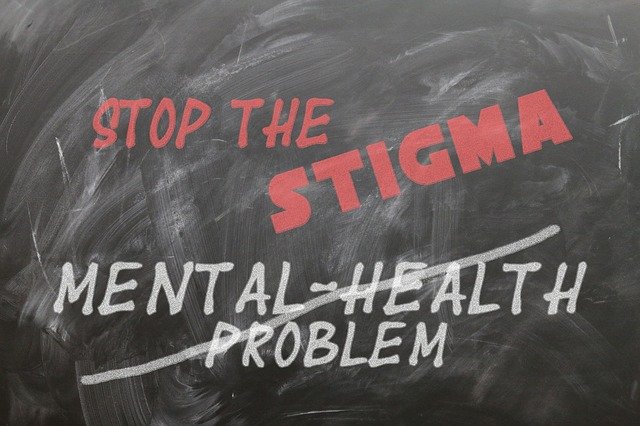Let us understand the concept of Mental Health Stigma: With a growing number of people experiencing a steady decline in their mental health, society is becoming better equipped to respond to our concerning needs.
However, the stigma around any form of mental illness and seeking help unfortunately still remains.
Please note mental illness is among the most common health conditions that has long existed. More than 50% of people will need mental health treatment at some point during their lifetime.
In addition to that, 1 in 25 are currently living with a serious mental illness, such as an eating disorder, bipolar disorder, post-traumatic stress disorder (PTSD), or even major depression.
Please note all normal adults do regularly feeling some form of worry, nervousness, or anxiety; some frequently experience sadness or even do showcase symptoms of depression.
Given how common and customary it is for people to experience a decline in their mental health, the level of stigma that exists in society is surprising and often contradictory.
We must support those living with mental illness, so they can live normal lives with others who could possibly help them recover.
Nobody must support the idea of keeping those with a mental health condition out of society. People do not believe that those living with mental illness are excessively dangerous or even prone to violence.
However, there are certain sections of the society who do believe there is still a lot of stigma attached to mental illness, while a lot of people do not even want to welcome a mental health facility into their neighbourhood.
Let us first go down to the basics….
What Is A Stigma?
Stigmas in society are a commonplace of residence. They can be difficult to dismantle, pull apart and overcome once they become established over many years.
A stigma is definitely a negative and often unfair social attitude attached to a person or a group, often going into placing shame on them for a perceived deficiency or difference to their core existence.
Individuals or groups can evidently apply stigma to those who live a certain way, have a certain set of cultural beliefs or even make lifestyle choices, or towards people living with health conditions, such as mental illnesses.
Mental Health Stigma (In Detail)
Mental health stigma refers to the societal disapproval, or when society places shame on people who live with a mental illness or seek help for any form of emotional distress, such as anxiety, depression, bipolar disorder, or PTSD.
The pressure of any form of mental health stigma can come from family, friends, co-workers, and society on a broader level. Groups can also politicize stigma.
It can prevent people living with mental illness from getting help, fitting into a society, and conclusively leading happy and comfortable lives.
Mental health stigma can come from several stereotypes, which are simplified beliefs or generalized beliefs or mere representations of entire groups of people that are often inaccurate, negative, and more so offensive.
They do allow a person to make quick judgments about others based on a few defining characteristics, which they then apply to anyone in that particular group.
For instance, people living with depression are often stereotyped as being lazy, while some judge those with anxiety to be cowardly.
Many people fear being labelled “crazy” for simply seeking professional and sounds support from a therapist.
Please note none of these characterizations are valid, and all of them are misinformed, a misnomer and do cause pain, and prevent people from getting the desired help they do need.
An often-politicized stereotype about people with mental illness is that they are quite violent or more so dangerous.
However, it is a small minority of people living with mental illness that do commit the violent acts.
They are actually 10 times more likely to be victims of a crime, making them a highly vulnerable population we must be protecting instead of fearing.
Why Is Mental Health Stigmatized?
Stigma against mental illness can come from several sources, such as personal, social, and family beliefs, and more so from the mental health condition itself, which may cause a person to act outside what is considered the social norm or the cultural norm.
A lack of awareness, education, perception, and a fear of people with mental illness can all lead up to an increased stigma.
Effects Of The Mental Health Stigma
A mental illness leading towards stigma and discrimination can negatively impact the person’s lives.
Those with a mental health issue are among the least likely of any group with a long-term health condition or even lending a disability to find work, be it in long-term relationships, living in good housing, and being socially included in the mainstream society.
Stigma against a person living with a mental health condition can make their symptoms go worse and make it very hard to recover.
A person may also be less likely to seek help if they live with stigma.
Stigma may not be that obvious or be expressed in large gestures. It can come in the words people use to describe a certain mental health condition or with people living with mental illness.
This can often involve hurtful, offensive, or dismissive language, which can be very upsetting for people to hear. This can cause them to feel totally alone and that no-one even understands what they are going through.
The Effects Of Stigma Do Include The Following Incidences:
- Internalization of negative beliefs
- Social isolation
- Low self-esteem
- Hopelessness
- Shame
- Avoiding treatment
- Worsening symptoms
- Lack of criminal justice
- Discrimination at work
- Unemployment
How To Overcome Mental Health Stigma
Public education to increase knowledge around any form of mental illness is paramount and vital, since the majority of stigma comes from a lack of understanding and misplaced fear.
It is important to review the reliable sources of information on mental health conditions and become better informed when learning that a friend, family member, or even co-worker is living with a mental illness.
At an individual level, a person with a mental health illness can get actively involved in their treatment.
They could also consider getting an advocate if they feel that stigma impacts their ability to navigate through day-to-day circumstances, such as employment, housing, or even healthcare.
An advocate is a trained professional who does help people work through the employment disputes, medical appointments, financial claims and fixing appointments, and even housing problems.
They cohesively support the rights of others who may not have the strength or the knowledge to do so on their own.
Summary
Stigma is a complex issue that is well-documented but challenging to overcome.
However, there are steps that a person facing mental health stigma can take, such as finding an advocate who can support them with work issues and financial matters.
They can also educate others by sharing their stories to promote a wider understanding of mental health conditions.
Importantly, everyone does have a role in diffusing the mental health stigma. People must educate themselves about the mental health issues, and better comprehend what life is like for those living with such conditions.
By doing so, they can certainly help dispel commonly held myths and stereotypes existing both in themselves and others.
Through complete education and better understanding, we can eliminate the stigma around the mental illness, and there will be immense support available to people who are currently experiencing any form of stigma.
You can find much more information on living a holistic lifestyle in these free magazines and on our YouTube channel.

About the Author: Trishna Patnaik, a BSc (in Life Sciences) and MBA (in Marketing) by qualification but an artist by choice. A self-taught artist based in Mumbai, Trishna has been practising art for over 14 years. After she had a professional stint in various reputed corporates, she realised that she wanted to do something more meaningful.
She found her true calling in her passion that is painting. Trishna is now a full-time professional painter pursuing her passion to create and explore to the fullest. She says, “It’s a road less travelled but a journey that I look forward to everyday.” Trishna also conducts painting workshops across Mumbai and other metropolitan cities of India. Trishna is an art therapist and healer. She works with clients on a one on one basis in Mumbai.
Trishna fancies the art of creative writing and is dappling her hands in that too, to soak in the experience and have an engagement with readers, wanderers and thinkers.






